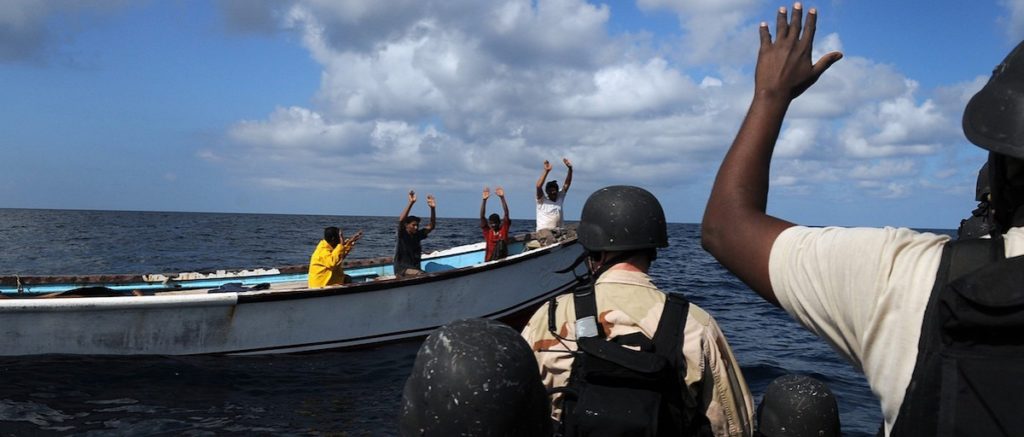
Shipping association BIMCO is stepping up its calls for naval support to combat piracy in the Gulf of Guinea after an annual report the International Maritime Bureau (IMB) shows that attacks in West Africa increased in 2018.
According to IMB, there were 201 incidents reported to the bureau last year (including six hijackings) – all of which happened in the Gulf of Guinea. That is a rise from 180 incidents in 2017 and from 191 in 2016.
The report also showed that the region saw a considerable spike in violence in the last quarter of the year, with 41 kidnappings in the waters off Nigeria alone. In West Africa, there appears to be challenges with underreporting, which is estimated at as much as 40%, the report said.
Turning the tide of piracy and attacks would not be a difficult operation in terms of military and law enforcement, according to BIMCO’s Head of Maritime Security, Jakob Larsen.
“To be honest, unless we see international naval support and close cooperation between international navies and local law enforcement, I doubt that we will see the numbers go down in any significant way.
“Significant capacity building is going on in the region and naval forces are being trained, but these initiatives are all aimed at the longer term and do not solve the problem right now. Therefore, we need to step up the effort. Only then can we really turn the tide on piracy in the region,” Larsen said.
He said what is needed is to combine the capacity building with more assets at sea and in the air in order to achieve a more robust local law enforcement.
“In the light of the new report, showing that piracy rose in 2018, we are once again calling for international navies to deploy to the region of West Africa primarily, and to cooperate closely with law enforcement from the region.
“This is in the interest of everybody. It is obviously in the interest of the seafarers, but each and every one of the naval powers in the world have a strategic interest in this region, since there is a lot of strategic commodities that comes out of the Gulf of Guinea region. It really is in the interest of the international society to make this trade smoother, and to protect the seafarers on whom we so deeply depend to keep the trade flowing,” Larsen added.